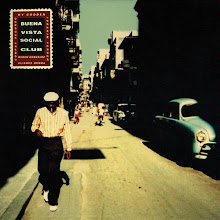By Brian Wask
“Goodbye boys. I die a true American!” – Bill “The Butcher” Poole
Pawel Pulaski came to the U.S. from Poland by ship in 1861. During the voyage a woman eight months pregnant was raped. The monster left her and her unborn child to die in the cramped bowels of a damp hull. A deckhand discovered the woman face down suffocating in her own placenta. Though the woman departed while giving birth to a healthy girl, she was able to identify the attacker. The baby was named America by a collection of midwives. Pulaski was elected judge and jury and set out to find the fiend among the ship’s mechanicals and inventory. What happened next has been dramatized over centuries. Each legend agrees he returned to the cabin covered in another’s blood. Some said he had guts between his teeth. In an illustration, presently kept at the Lower East Side Tenement Museum in Manhattan, drawn by Brunon Machowski, the ship’s resident artist, Pulaski’s face is painted like a clown, the mote of red around his mouth represents blood, the hand behind his back holding a partially devoured human leg.
After traveling the Yankee states for a year, learning English from the oral histories of freed slaves, and Americanizing his first name to Paul, in 1862, Pulaski, inspired by Lincoln’s Emancipation Proclamation, enthusiastically joined the North in the war between the states. He personally promised Jefferson Davis’s faux-presidential head on a stick. He tagged along with Colonel Ambrose Burnside's infantry in Rhode Island. Pulaski had such admiration for the Colonel's patriotism (Burnside would soon be a general) he mimicked his appearance– Ambrose's unique style of facial hair would later be called sideburns. In December of the same year General Burnside’s army was hammered by General Lee in the Battle of Fredericksburg, where the nineteen year old Paul Pulaski lost his left leg. He recovered in a makeshift Confederate hospital beside the Rappahannock River. There he continued to work on his English by listening to the wounded southerners surrounding him and transcribing what he heard. Some of them killed northerners with bayonets. A powder bomb took a Confederate soldier’s sight. He promised God he’d never fight nobody or nothing ever again in return for his sight. An amputee Yankee soldier finally departed after weeks of decomposing from infection. The hospital mourned together. Never mind what flag they fought for. After learning to walk with a wooden prosthetic Paul Pulaski gathered the few things he still had, registered an ID with a new last name– he took the name from a dead Irishman– and left with one leg in the night.
In July of 1863, Pulaski, now known as Paul Cody, finished his long haul to New York, settling in a Lower East Side tenement. The final draft of the Conscription Act passed congress; the government could now draft men eighteen to forty-five to fight in the War. It was hell hot and the street sewage ankle deep. The public was dispirited, insisting the draft infringed on their individual freedoms. Paul Cody sat and listened from the doorway to his ground floor tenement. Sad dogs slept nearby. Souls sunk like fractured ships. Orphans begged and coppers beat them with clubs. The Dead Rabbits and Plug Uglies gathered at the Five Points, cracked skulls and severed hands. Sometimes at night Paul Cody left the tenements and limped west to the Hudson River, along the way passing rumbles outside Bowery brew houses. At the river, strolling the planks, he’d listen to wharf rats pillage anchored ships, often followed by loud gun fights that lit up the dark like the stages of Broadway. During a flash of light he could see the brown ridges of New Jersey. One night a hussy called Mazie drunk stumbled into a turf war between local thugs in Paradise Square and was bludgeoned to death with a cast iron claw-hammer. The police force came in numbers but retreated just as often. The gangs ruled the slums and there wasn’t much anyone could do about it. Then John Wilkes Booth shot Abraham Lincoln and, in Paul Cody’s words, “The country died, leaving a population to debate between the innate delusions of right and wrong.” His English was still okay.
For ten years Paul Cody auctioned live stock on the polluted river. Ships came and went and the brew clubs of the 4th Ward spilled into the streets until the Westside of the Bowery sank into the harbor, feeding the river death and disease. He gathered the few items he managed to keep from thieves and slept against a wall just above the Bowery in Cooper Square for several weeks during the Fall. Before the first snow Old John McSorley, the owner of the Old House at Home on 7th street, offered him a job watching his horse during the day, while Old John, between pouring ale, fed the baker’s oven wood so his saloon remained toasty. The city was predicting a cold winter, a confidence plan the government conspired to collect charitable donations from its wealthier citizens. Without heat Old John was certain customers would find another alehouse to drown in. The winter sales were better than ever so Old John hired Paul to watch the horse full-time and gave him a room for nothing above the saloon. Because the horse slept peacefully most of the day the horse-watcher enjoyed considerable time drinking ale in lieu of pay. One day a German bricklayer, fixed to a window next to the entrance on most nights, called out to Paul but instead called him Punch. From then on everyone called him Punch. Over the years Punch Cody continued to document the stories he heard at McSorley's but most of these journals remain illegible.
Nov 17, 2009






